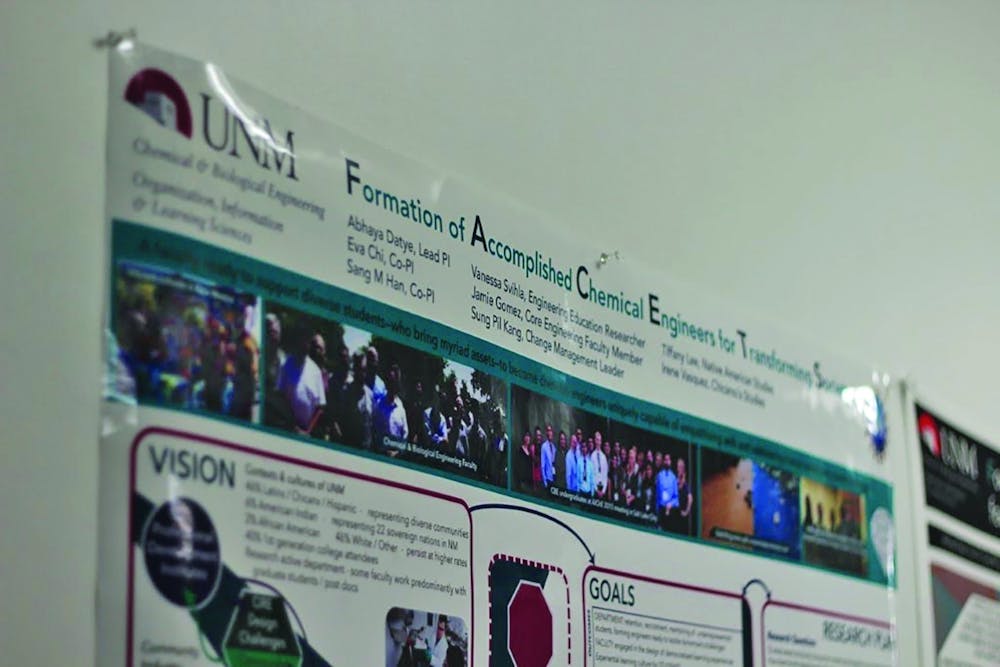The Department of Chemical and Biological Engineering might not be the first place you'd expect to find English professor Catherine Hubka.
Since the fall of 2017, Hubka has helped engineering students improve their writing and communication skills inside and outside the classroom.
Hubka's presence in the department is thanks to a program called Formation of Accomplished Chemical Engineers for Transforming Society (FACETS) that brought her on as part of its writing program initiative.
UNM faculty created FACETS in 2016 to promote chemical and biological engineering students and increase student inclusivity and diversity. Past projects have ranged from acid-mine pollution clean up to creating cost-effective aid for Puerto Rico.
Hubka serves as a co-instructor for lab courses within the chemical and biological engineering curriculum and helps students strengthen their technical writing skills. In addition, Hubka helps professors develop assignment plans that include more writing and peer reviews.
"I think engineering students get the impression that they won't have to write after they finish taking English 219. And that's not true," Hubka said. "They will write throughout their career — that's part of their profession."
Hubka deals with the writing issues of chemical and biological engineering students that instructors saw firsthand.
"The biggest problem that I have in the lab class I teach is that I feel like the writing skills for technical reports are not where I would like them to be," chemical and biological engineering professor Eva Chi said.
In order to address this problem, Chi needed to get to the heart of the issue — that lower-level English courses were not teaching her students the writing skills they needed to continue their education.
"Technical writing, what we want them to do in the lab is a very particular type of writing, and they haven't done this before," she said. "Why (would) we have the expectation that they can do this?"
In order for students to improve their writing skills, they first have to view them as an important part of their field, senior lecturer in the department Jamie Gomez said.
Gomez, who has contributed research for the FACETS program, said the important part of what the writing initiative offers is writing strategies and instructor support in the classroom, rather than outside of it.
Get content from The Daily Lobo delivered to your inbox
Without that integration, Gomez said, students fall behind.
"When students have English 101 and all their other English classes and they come to engineering, they think of it as something separate," Gomez said. "What we are trying to create is really one identity — engineering and writing."
The data appears to agree with Gomez.
Research conducted by Chi, Hubka and Vanessa Svhila shows that students who scored 50% or lower on draft reports saw an average of a 32% to 43% score increase after the peer-review process.
Scores haven't been the only improvement. Students said they had better self-assessment and independence because of the learning process.
"By reading (my partner's) report, I was reminded of a lot of points I neglected on my own," one student wrote in the research comments.
Alex McCausland is a freelance reporter at the Daily Lobo. He can be contacted at news@dailylobo.com or on Twitter @alexkmccausland






